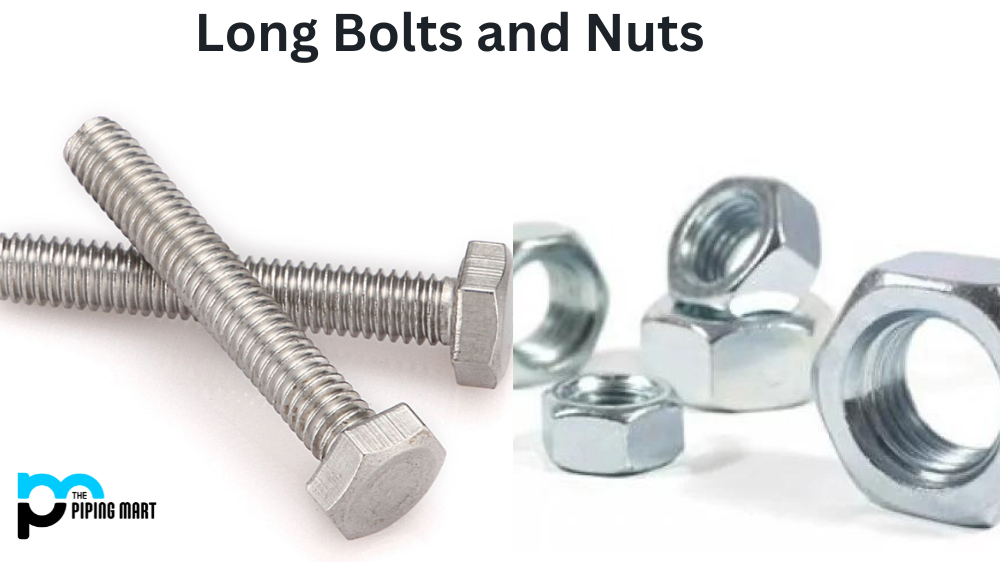When it comes to building, vehicle repairs, and DIY projects, the significance of choosing the appropriate fasteners is crucial. These often overlooked hardware are essential in maintaining the integrity and protection of your projects, regardless of whether you are constructing a deck, fixing a car, or taking on a home renovation project. Nonetheless, with a large array of options available, understanding what to look for when buying nuts and bolts is essential for achieving the optimal outcomes.
The following guide aims to provide you with a complete overview of different types of fasteners, along with advice on how to choose the most suitable fastening solution for your unique situations. From the typical types of bolts to the myriad materials and coatings available, we will discuss the factors that contribute to your decision of nuts and bolts. Whether you’re a professional contractor or a weekend warrior, arming yourself with this information will enable you to make wise choices and ensure the achievement of your projects.
Understanding Fasteners

Fasteners are vital fasteners that hold materials together, creating the backbone of numerous construction and fixing projects. Washer Nuts come in different forms, dimensions, and materials, each made to fulfill specific needs. The core principle behind fasteners lies in their capacity to create a secure connection by using the grooved shaft of a bolt, which is matched with a compatible nut that can be secured or unfastened as necessary.
Different types of nuts and bolts fulfill distinct purposes. For instance, hex bolts are frequently used in heavy-duty applications due to their strength, while carriage bolts are best for projects requiring a polished finish. In contrast, lagging bolts are commonly used for fastening wood, especially in building. Comprehending these differences is important for choosing the right fastener for a project, providing safety and durability in the finished construction.
Additionally, materials and coatings play a crucial role in the functionality of nuts and bolts. Metal is the most commonly used material, but options like brass and titanium are available for unique applications. Rust-resistant finishes, such as galvanized coatings, can extend the lifespan of fasteners in exterior or wet environments. By knowing the types and features of nuts and bolts, users can make educated choices to improve the quality and longevity of their projects.
Substances and Finishes
When choosing nuts and bolts, the materials they are made from play a vital role in determining their performance and durability. Metal is the most widely used substance due to its strength and versatility. However, there are different types of steel, including carbon steel and alloy steel, each suited for specific applications. For environments that require resistance to rust and corrosion, stainless steel is an outstanding option, offering durability and longevity even in harsh conditions.
Coatings are also important as they can improve the performance of nuts and bolts. Zinc coating is a popular choice as it provides a layer of protection against corrosion while maintaining a clean appearance. Galvanizing, a more durable coating, involves dipping steel parts in molten zinc, offering greater resistance to the elements. For specific uses, such as in marine environments, a coating that can resist saltwater corrosion is essential, making materials like bronze or coatings specially designed for marine use important considerations.
Understanding the variations in materials and their finishes can help you choose the right fasteners for your project. For instance, while titanium fasteners are lightweight and resistant to corrosion, they can be significantly more expensive than their metal counterparts. Choosing the right material and coating not only ensures the integrity of the assembly but also optimizes the cost-effectiveness and longevity of your project.
Purchasing Tips and Evaluations
When selecting nuts and bolts, understanding the various kinds and their applications is essential. Start by determining whether you need metric or imperial fasteners. Both systems are widely used, but selecting the right one is essential for matching with your tasks. Additionally, get acquainted with specific grades of bolts and specifications, as these influence the durability and suitability for various applications, from large-scale building to everyday use.
Next, think about the materials and finishes of the fasteners. Stainless steel fasteners are often recommended for outdoor use due to their corrosion resistance, while zinc-plated options may be appropriate for indoor projects. If your application requires a specialized coating for additional strength and longevity, explore options like galvanization or custom coatings. Consider the environmental conditions the fasteners will encounter, as this can greatly affect their performance and lifespan.
Lastly, keep a list handy while purchasing nuts and bolts. Measure the dimensions accurately, review compatibility with additional parts in your project, and ensure that the nuts fit securely to the bolts. Socket Head Cap Screws of choices might lead to uncertainty, but sticking to your project requirements and understanding the differences in thread types, lock nuts, and specialty fasteners will aid you make informed choices at all times.
